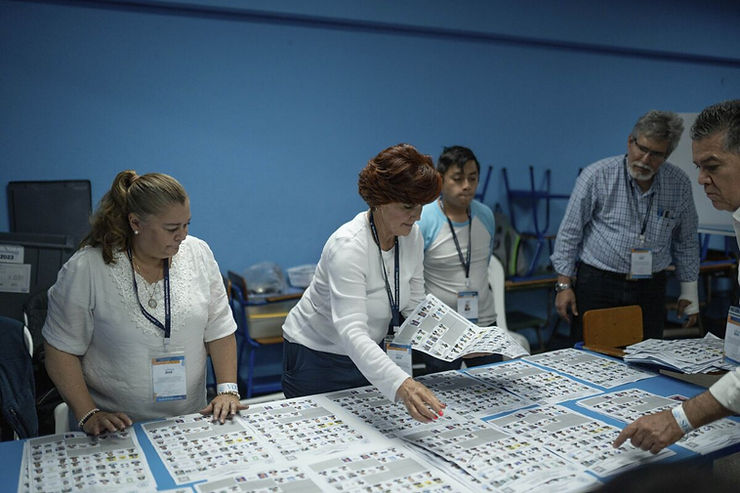By: Cynthia Wang
With Guatemala’s fiercely divided 2023 presidential election still ongoing, voters scramble to support their candidates and policies.
Citizens are choosing between 20 different candidates, with three candidates currently in the lead. Several top nominees were in fact banned from participating in the election as the electoral authority believed that they threatened the country’s existing system of government. Many viewed this decision as yet another step towards an authoritarian future for Guatemala.
Several voters have repeatedly resorted to extreme measures to sway the election results one way or the other. In San Jose del Golfo, polling station workers were forced off a bus and drenched in gasoline by a group who then threatened to light them on fire. There have also been scattered reports of people burning ballots, buying votes, and election coercion.
As such, corruption remains a hot topic for the election’s candidates. For instance, some candidates are concerned over the dwindling freedom of the press in Guatemala. Just this month, a journalist known for his articles on government misconduct was arrested on charges of money laundering.
The three candidates at the forefront of the presidential race all have their fair share of not only powerful connections, but also controversies. Sanda Torres, a former first lady, was previously arrested for campaign finance violations. Meanwhile, Zury Rios is the daughter of a tyrant accused of genocide against Indigenous Guatemalans. On the other hand, Edmond Mulet, former ambassador to the United States and EU, is being criticized for adopting Guatemalan children to Canadian families.
All three candidates support popular proposals to crack down on gangs and violence, with Edmond Mulet promising to build a high-security prison and raise police salaries and Zury Rios vowing to harden security policies.
These candidates also plan to assist those in poverty and ease economic suffering. For instance, Sanda Torres has promised to increase cash transfers and low-income food assistance.
On June 25, with one-fourth of ballots counted, Sanda Torres was in first place with 15 percent of votes, and runner-up Bernando Arevalo was in close second with 12 percent. However, these results could easily change as more and more votes are counted.











